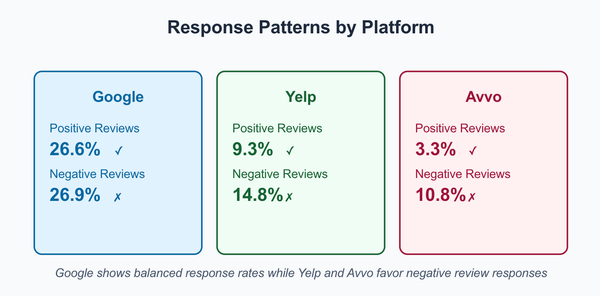Property Division in Texas Divorces: Community Property Laws in Action

Getting a divorce can be emotionally and financially challenging for both the husband and the wife. They now have to divide whatever they have earned or got together throughout the marriage years. One major concern couples face during a divorce is property division, which includes all their joint assets, jewelry, digital currencies, money, real estate, and other valuables.
If you are living in Texas and planning to get separated from your partner, you must know how the community property will be divided between spouses. Texas is among the nine states that implement community property laws, meaning that the property will be divided ‘fair and just’ between both spouses.
Most people don’t know about property division Texas divorce laws and often make serious mistakes while filing for separation. In today’s blog, we'll explain how property division works in Texas divorces to help protect your rights during this critical time. Let’s get started!
What is Community Property Division Law in Texas Divorces?
Texas is one of the few states in the U.S. that follows community property laws. But what does this mean? The community property law defines the rules of property division between both parties.
In Texas, it’s mandatory to know that the property you have acquired during the marriage is counted as community property and will be divided between both partners. However, the division will never be based on a 50/50 basis; one spouse may get ‘X’ while the other may only get ‘X-20%’ based on ‘Just and Rights’ means.
On the other hand, if one spouse buys any property or assets before marriage, it will be considered separate property. The community property law does not affect this property in the final Decree of Divorce, as the other spouse has no share in acquiring these assets.
Community Property vs. Separate Property: What’s the Difference?
Now, we know that the community property will be divided between both spouses and the separate property will remain unchanged. But the question is - what falls under each property type? To find the answer to this question and better understand marital property division in Texas, let’s look at the key differences between community and separate property:
What Comes Under Community Property?
- Salaries and wages earned during the marriage.
- Homes, cars, and real estate were purchased during the marriage.
- Retirement benefits like pensions, military retirement plans, 401(k) accounts, stock ownership plans for employees, thrift plans (TSP savings), individual retirement accounts (IRAs), annuities, and variable annuity life insurance accumulated during the marriage.
- Debts incurred while married, like credit cards or loans.
What Comes Under Separate Property?
- Property owned by one spouse before marriage.
- Inherited properties, money, assets, or gifts received by one spouse during the marriage.
- Personal injury settlements are awarded to one spouse (except for lost wages and medical expenses).
According to the Community Property Division Texas divorce law, separate property remains with the spouse who owns it. However, if you can’t prove it to be a separate property, the court may count it as community property and split it as ‘Just and Right.’ So, it becomes highly important to present evidence (like important documents or receipts) to prove that a specific asset qualifies as a separate property.
Factors Affecting the Community Property Division Texas Divorce?
The Community property division rule does not split the property 50/50 between husband and wife. Under this law, each spouse will get a certain percentage of the total amount of community assets on the basis of certain factors. The court usually starts the proceeding by identifying the separate and community party. Once the property characterization is done then, the property division starts, and here are the things that the court considers:
- Earning capacity of each spouse: While dividing the property, the court considers each partner's current and future earning capacity to ensure a smooth and fair division.
- Health conditions and age of the couple: If any of the spouses are dealing with any illness, they might get a slightly higher amount of assets. Meanwhile, each spouse's age and how long they are capable of working also play a major part in property division.
- The reason for marriage failure: Although Texas follows a ‘no-fault divorce’ policy, if someone is guilty of adultery or abuse, they’ll get significantly less share in the property division.
- Debts, liabilities, and needs of the party: The debts, credit card bills, and needs of each partner are considered, while property division ensures each one gets a fair share of the property.
- Children's involvement: If the couple has any children, then the one with child’s custody or who is responsible for their well-being will be rewarded with more shares.
- Pre or post-nuptial agreements: If the couple has any pre or post-marriage nuptial agreements, then the court will consider that as well. These agreements are usually contracts between couples with specific terms about the property division in unfortunate situations like divorce.
What Happens to the Debt After Divorce in Texas?

Your debt will also be treated the same as your assets under the Community Property Division Law in Texas. If the debt was acquired during or after the marriage, then both spouses will be responsible for paying it equitably, not equally. The community or joint debt may include credit card debts, mortgages, auto loans, home loans, and other financial obligations.
The final Decree of Divorce in Texas will outline how much each spouse is responsible for paying the debt. However, the lenders are not bound by these rules and may seek payments from you if the responsible spouse is unable to pay the amount or refuses to do so.
What If My Spouse Refuses to Pay the Debt After Divorce?
First of all, deactivate or freeze your joint accounts if you doubt that the other party is doing financial misconduct. A Divorce Decree does not bind the lenders, but you can secure a Judge’s orders via a Lien and seek legal advice from a family or divorce attorney to protect your rights.
Tips to Protect Your Assets During Property Division Texas Divorces

In the United States, around 41% of first marriages end in divorce in the first 8 years of marriage. As a result, all of their joint assets get divided between both spouses, and it may sometimes end up not being fair. So, you must stay prepared to make sure your rights and assets are protected. Here are a few practical steps to help you marital property division in Texas:
1. Gather Important Documents
Start by collecting key financial records, including:
- Bank statements
- Deeds and property titles
- Tax returns
- Retirement account statements
- Loan and credit card records
Having these documents on hand will make it easier to identify and value your property.
2. Avoid Financial Missteps
Avoid making large purchases, moving money around, or hiding assets during divorce or court hearings. These actions may be considered financial misconduct and may harm your case in court. Check out these common mistakes to avoid when sending a divorce legal notice to protect your case further.
3. Don’t Hide Your Assets
You are also required to show all of your legal assets in front of the court. If you try to hide some important or costly assets, the court may automatically award the other party more property shares as a punishment for your dishonesty and misconduct.
3. Hire a Divorce Attorney
Sometimes, things can go unplanned, and navigating every corner of Property Division Texas Divorce Law alone is not possible for everyone. A skilled Texas divorce attorney can help you understand your rights, gather important evidence, negotiate a fair settlement, and protect your legal rights. If you’re unsure where to start, check out this Lawyers Map to learn how many skilled attorneys are in your area based on their expertise and reviews.
4. Consider Mediation
If you and your spouse are on relatively good terms and want to get separated as per each other’s best interest, mediation should be your first option to divide property. A neutral mediator will help you reach a mutually agreeable solution without going to court and wasting your precious time and energy.
What’s New in Texas Divorce Laws 2024?
Texas divorce laws have been consistent over the past years. However, there are certain minor updates in 2024 that might affect the property division Texas divorce:
- Increased Focus on Mediation: Even judges know that cases dragged to court cost a lot and are not the first & best option. With this factor in mind, courts encourage couples to resolve property division through mediation before going to trial. Mediation is often faster, less stressful, and less expensive.
- Digital Assets: With the rise of cryptocurrency and digital investments, courts now recognize digital assets as part of community property. Couples will need to disclose any such assets during the divorce process.
- Retirement Division Rules: Updates have clarified how retirement accounts, pensions, and 401(k)s are valued and divided.
- Spousal Support Considerations: Courts now consider each spouse’s ability to support themselves post-divorce, especially in long marriages.
These updates are in action to reflect modern financial realities and aim to make property division in Texas divorces fairer and more apparent.
Community Property Division with An Example Situation
Now, you have all the essential information about how the community property will be divided between both spouses after divorce in Texas. To make things clearer, let’s look at a practical example of how community property laws work:
Scene 1: House and Mortgage
- John and Sarah purchased a house during their marriage.
- The house qualifies as community property because it was bought while they were married, even though John’s salary covered most payments.
- Upon divorce, the house’s value will be divided fairly. Sarah might receive the house, while John receives other assets to balance the division.
Scene 2: Retirement Funds
- Sarah has a retirement account that she started after marrying John.
- The funds in the account are considered community property because they were earned during the marriage.
- The court will determine how much of the retirement account John is entitled to.
Scene 3: Inheritance
- Sarah inherited $50,000 from her grandfather during the marriage.
- Since inheritance qualifies as separate property, Sarah is entitled to keep the entire $50,000. However, she willingly put all the money in a joint account after the marriage. So, the money is now counted as community property.
Scene 4: Child Custody and Other Medical Conditions
- Sarah got custody of their only child and needed to care for him/her.
- Sarah is also diagnosed with a certain disease and cannot work after 10-15 years.
- With these factors in mind, the court ordered Sarah to have more shares in the property division than John.
Scene 5: Debt Pay-off
- They both acquired $60,000 in debt after marriage, and the loan was in John’s name.
- The court ordered John to pay 65% of the loan and Sarah to pay the rest 35%.
- Due to some conditions, Sarah was unable to pay her part of the debt.
- Now, the lender can still ask John to pay the remaining amount, as the final Decree of Divorce does not affect the lender’s right to collect debt.
- John can now talk to a Divorce Attorney and find a way out of this situation while protecting his rights.
These scenarios are assumed to be between a couple, Sarah and John, who decided to get a divorce. The examples in this situation highlight how Texas divorce laws distinguish between community and separate property and how much each person will be liable to, ensuring fair outcomes.
Stay Informed, Stay Protected!
Going through a divorce is never easy for anyone, but understanding Texas divorce laws 2024 and how marital property division in Texas works can give you clarity during this challenging time. In Texas, community property laws ensure that assets and debts are divided fairly, even if the split isn’t exactly 50/50.
Don’t know where to get accurate divorce related legal help? Lawyersrating.FYI is your go-to destination. Here, you can get in touch with some of the most trusted and experienced divorce attorneys who have helped thousands of people get justice. Sign up on Lawyersrating.FYI now, and make community property division Texas divorce easier.





